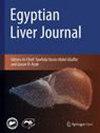Latest advances in hepatocellular carcinoma management and prevention through advanced technologies
IF 0.7
Q4 GASTROENTEROLOGY & HEPATOLOGY
引用次数: 0
Abstract
Hepatocellular carcinoma (HCC) is a common type of liver cancer, with a high mortality rate. Hepatocellular carcinoma is a type of liver cancer that can be effectively managed through early detection and accurate diagnosis, followed by a personalized treatment plan that may include surgical resection, liver transplantation, minimally-invasive techniques, immunotherapy, or targeted therapy depending on the stage and severity of the cancer. This paper discusses recent advances in the early detection, management, and prevention of HCC. The use of newer imaging techniques, such as Magnetic resonance imaging (MRI) and contrast-enhanced ultrasound, along with image segmentation technology and deep learning models, have greatly enhanced the accuracy of HCC detection and diagnosis. Minimally-invasive techniques, such as thermal ablation and radiofrequency ablation, have allowed for more precise and targeted destruction of tumors, while Nanoparticles, immunotherapy and targeted therapy have shown promise in the management of advanced stage HCC. The use of Artificial intelligence (AI) and machine learning has revolutionized HCC research, aiding in the identification of high-risk patients and predicting outcomes. Lifestyle modifications, such as weight management, alcohol avoidance, and hepatitis B vaccinations, can play a critical role in preventing HCC development. Recent advances in early detection, management, and prevention of HCC have shown promise in improving patient outcomes. The use of newer imaging techniques, minimally-invasive techniques, immunotherapy, targeted therapy, and AI and machine learning have greatly enhanced HCC research and management, while lifestyle modifications can play a critical role in prevention. However, further research is required to fully understand the potential benefits of nanoparticles, traditional Chinese medicine and herbal medicines in HCC treatment. • Early detection and diagnosis: The advent of newer imaging techniques, such as MRI, contrast-enhanced ultrasound, and image segmentation technology, has allowed for earlier and more accurate detection of HCC, with higher sensitivity and specificity than previous techniques. Advances in radiomics and deep learning models have greatly enhanced the accuracy of HCC diagnosis. • AI and machine learning: The use of AI and machine learning has revolutionized HCC research, with greater accuracy and an ability to analyze large volumes of data. AI-based predictive models have been shown to be helpful in identifying high-risk patients and predicting outcomes. • Management: While surgical resection and liver transplantation remain effective treatments for early-stage HCC, advances in minimally-invasive techniques, such as thermal ablation and radiofrequency ablation, have allowed for more precise and targeted destruction of tumors. Additionally, nanoparticles, immunotherapy and targeted therapy have shown significant promise in the management of advanced stage HCC. • Prevention: Lifestyle modifications, such as weight management and alcohol avoidance, along with hepatitis B vaccinations, can play a critical role in preventing HCC development. • Traditional Chinese medicine and herbal medicines in HCC treatment require further investigation.通过先进技术管理和预防肝细胞癌的最新进展
肝细胞癌(HCC)是一种常见的肝癌,死亡率很高。肝细胞癌是一种可以通过早期检测和准确诊断得到有效控制的肝癌,随后可根据癌症的分期和严重程度采取个性化的治疗方案,包括手术切除、肝移植、微创技术、免疫疗法或靶向疗法。本文讨论了 HCC 早期检测、管理和预防方面的最新进展。磁共振成像(MRI)和对比增强超声波等新型成像技术以及图像分割技术和深度学习模型的使用,大大提高了 HCC 检测和诊断的准确性。热消融和射频消融等微创技术可以更精确、更有针对性地消灭肿瘤,而纳米粒子、免疫疗法和靶向疗法则在晚期 HCC 的治疗中大有可为。人工智能(AI)和机器学习的使用为 HCC 研究带来了革命性的变化,有助于识别高危患者和预测预后。生活方式的改变,如控制体重、避免饮酒和接种乙肝疫苗,在预防 HCC 的发展中发挥着至关重要的作用。HCC 早期检测、管理和预防方面的最新进展表明,有望改善患者的预后。较新的成像技术、微创技术、免疫疗法、靶向疗法以及人工智能和机器学习的使用大大加强了对 HCC 的研究和管理,而生活方式的改变则在预防方面发挥着至关重要的作用。然而,要充分了解纳米粒子、传统中药和草药在 HCC 治疗中的潜在益处,还需要进一步的研究。- 早期检测和诊断:核磁共振成像、对比增强超声波和图像分割技术等新型成像技术的出现,使 HCC 的检测更早、更准确,其灵敏度和特异性均高于以往的技术。放射组学和深度学习模型的进步大大提高了 HCC 诊断的准确性。- 人工智能和机器学习:人工智能和机器学习的使用为 HCC 研究带来了革命性的变化,其准确性更高,而且能够分析大量数据。基于人工智能的预测模型已被证明有助于识别高危患者和预测预后。- 管理:虽然手术切除和肝移植仍然是早期 HCC 的有效治疗方法,但热消融和射频消融等微创技术的进步使肿瘤的破坏更加精确和有针对性。此外,纳米粒子、免疫疗法和靶向疗法在晚期 HCC 的治疗中也大有可为。- 预防:调整生活方式,如控制体重和避免饮酒,以及接种乙型肝炎疫苗,对预防 HCC 的发展起着至关重要的作用。- 中药和草药在治疗 HCC 方面的作用有待进一步研究。
本文章由计算机程序翻译,如有差异,请以英文原文为准。
求助全文
约1分钟内获得全文
求助全文

 求助内容:
求助内容: 应助结果提醒方式:
应助结果提醒方式:


